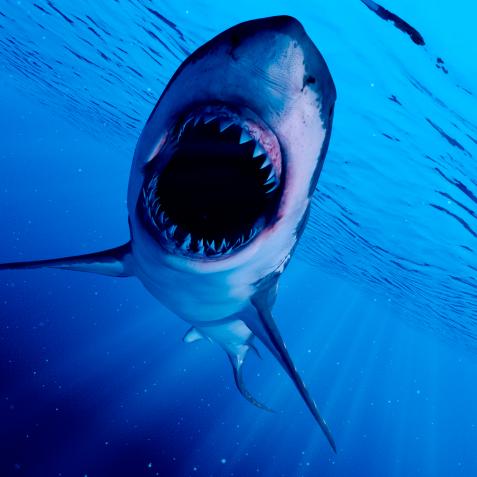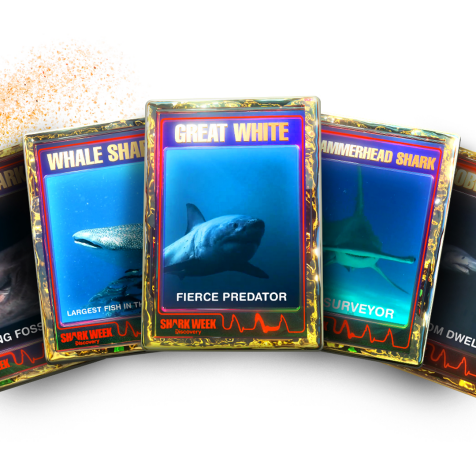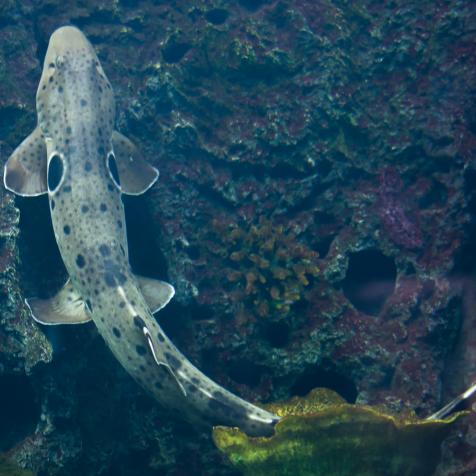
Meet the Founders of MISS
Through a common passion for shark research, a shared vision to make the field more inclusive, and a hope for inspiring the next generation, MISS (Minorities In Shark Sciences) was formed.
Discovery interviewed MISS founders Jasmin Graham, Amani Webber-Schultz, Carlee Jackson, and Jaida Elcock, to learn more about the newly created organization's efforts in shark science.
Q: MISS was formed in the past couple months and without anyone actually meeting in person due to the pandemic. How did you find each other and what made you want form MISS?
Jasmin: I first connected with Amani and Jaida to talk about lab research and advisors for graduate school. I found Carlee via the #BlackInNature trending hashtag on Twitter. We jokingly tweeted about forming a club and when The Field School Foundation offered to host a meeting for us, we realized we could turn this into something real. So, I sent all the other ladies a message on Twitter and we got to work to create a community that would support women of color in shark science.

Jasmin Graham downloading data from an acoustic receiver.
Q: Tell us more about MISS' mission and resources for aspiring shark and marine scientists?
Jasmin: Our mission is to help women of color overcome the barriers and challenges they face in marine science.Through MISS, we host workshops with hands-on experiences in shark research and a series of professional development discussions. We strive to create a sense of community and connect women of color with mentors, helping them break into shark science.

Jaida Elcock doing lab work at Howard University.
Q: What inspired you to pursue a career in shark science?
Jaida: I’ve always been interested in the ocean, especially because I lived in landlocked states so it was a mysterious ecosystem I couldn’t access. I decided to learn more by watching nature TV shows about ocean organisms and ecosystems. The more I learned about sharks from these shows, the more I realized they are misunderstood and mistreated, yet incredibly important in their respective ecosystems.
Jasmin: I did a an undergraduate Research Experience at Fort Johnson Marine lab and just fell in love with shark research. I tried a lot of different experiences throughout my time as an undergraduate student, but I kept coming back to sharks. They are my true passion.

Vincent Dimick
Amani Webber baiting a hook during a Field School research cruise.
Q: What was your most rewarding or memorable moment in your experience researching sharks?
Amani: I’ve always been mesmerized by great hammerheads and being close to one for the first time was breathtaking. We had to do our work-up on the shark quickly because of how stressed out hammerheads can get. So on top of being in awe of this amazing creature, I also had a ton of adrenaline from needing to be fast and efficient.
Jasmin: Every time I get to tag a sawfish I am in awe. They are magnificent and rare creatures – I am fortunate to see them regularly. The magic has never worn off!
Carlee: During one of my research surveys with nurse sharks in Belize, a great hammerhead unexpectedly graced us with her presence. I wasn’t expecting a large hammerhead in my 5-feet deep seagrass study area, but needless to say she made my entire trip! And what tickled me the most was that tourists in the water nearby had no idea a huge hammerhead was so close to them.

Carlee Jackson taking notes during a research trip.
Q: What advice do you have for students from minority communities trying to get into your field?
Jasmin: I would say, just keep working hard and don’t let anyone make you feel like you don’t belong in this space. Know that you’re not alone, [and] there are loads of minority scientists out there. Try to connect with them and find a community to support you. Twitter can also be a great resource to find minority scientists. It’s so important to build a strong network around you.
Amani: My advice would be to gain experience whenever and wherever you can. This field is very competitive. If you work your hardest for someone and show them that you are teachable, they will be a reference for you when you are applying for jobs, grad school, internships, or anything else.
Carlee: You will encounter adversities, but as long as you stand firm in what you're passionate about and keep doing the work, nothing can stop you! Network, talk to professors, and find mentors that can help you through the process of getting into this field. Join clubs, organizations, and connect with people who you know will keep your passion burning!


















